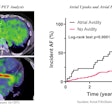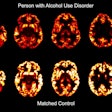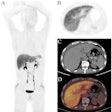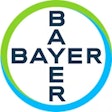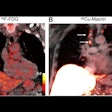
The U.S. Centers for Medicare and Medicaid Services (CMS) finalized a plan April 7 that limits coverage of Biogen's Alzheimer's disease drug Aduhelm only to patients enrolled in clinical trials, despite pressure from the Society of Nuclear Medicine and Molecular Imaging (SNMMI) and other groups to expand coverage of the drug.
The CMS said it received a record 10,000 stakeholder comments and more than 250 peer-reviewed documents since January when it first proposed the national coverage decision (NCD), and said it ran "a transparent, evidence-based process."
Under the final NCD, Medicare will cover monoclonal antibodies that target amyloid (or plaque) for the treatment of Alzheimer's disease that receive traditional approval from the U.S. Food and Drug Administration (FDA) under coverage with evidence development (CED).
This means that payment will only be made for these drugs if patients are enrolled in FDA-approved clinical studies, such as data collection through routine clinical practice or data registries.
In addition, the NCD also limits amyloid PET scans to one per lifetime per Medicare beneficiary.
"We expressed our strong opposition to this proposal. There is no evidence to suggest that a single amyloid PET scan per patient is appropriate or that a scan performed years ago can provide the diagnostic information needed to determine whether a patient is currently a candidate for therapy," the SNMMI said.
In contrast, the decision explicitly covers other tests for detection of beta amyloid (e.g., cerebral spinal fluid) without limitation, despite the fact that beta-amyloid PET is the only test approved by the FDA for detecting beta amyloid, SNMMI added.
Aduhelm was approved using the FDA's accelerated approval pathway, which can be used for a drug for a serious or life-threatening illness that provides a meaningful therapeutic advantage over existing treatments.
The Alzheimer's Association stated the CMS decision essentially ignores the needs of people living with Alzheimer's disease.
"CMS has created unnecessary barriers for individuals with Alzheimer's disease. Patients with Alzheimer's, a fatal disease, should have FDA-approved treatments covered by Medicare just as those facing other diseases do," said Harry Johns, Alzheimer's Association chief executive officer.
It is unclear how the NCD will affect the approval pathway for other monoclonal antibodies for treating Alzheimer's disease, such as those being developed by Eli Lilly and Company, Eisai, and Roche.
During Biogen's clinical development of Aduhelm, PET scans were used to diagnose patients eligible for enrolment in trials, while two MRIs were typically performed on patients during follow-up to detect cases of amyloid-related imaging abnormalities (ARIA-E), also known as cerebral edema.
Experts who included members of the FDA advisory board that reviewed aducanumab prior to approval criticized the FDA's accelerated approval process, citing a lack of evidence on the drug's effectiveness. CMS officials said its final decision was intended to protect patients while gathering data to indicate whether Aduhelm could actually help them by slowing the pace of their cognitive decline. Biogen's trials are ongoing.
The final NCD is specific to individuals who have a clinical diagnosis of mild cognitive impairment (MCI) due to Alzheimer's disease or mild dementia with a confirmed presence of plaque on the brain.
"This is consistent with use outlined on the FDA label. Should the FDA update the label, CMS would reevaluate the coverage policy accordingly," the CMS said.












